New Delhi: Prime Minister Narendra Modi chaired a key cabinet panel meeting to address tensions with neighbour Pakistan following the Pahalgam terror attack, which took place on 22 April. As the meeting is expected to cover a series of issues after the deadly attack in Jammu and Kashmir, details about the neighbour’s role in fostering terrorism throughout the area, over the past several years, show a concerning status.
PM Modi initially chaired a Cabinet Committee on Security before conducting a meeting of the Cabinet Committee on Political Affairs. It should be noted that the last meeting of CCPA took place after the deadly Pulwama attack that followed India’s response with the Balakot airstrike.
However, according to official information and documents, a number of incidents suggest that Pakistan, the bordering country, has been promoting or exporting terrorism–from Kashmir to Kabul and beyond.
The well-documented, official details have highlighted the long-standing role of Pakistan in instigating, sheltering, and exporting terrorism not only across its border with India but also globally.
The information, backed by detailed accounts and official records, showcases Pakistan’s strategic use of terror as a tool of state policy, extending from Kashmir to Kabul and reaching as far as Moscow, Tehran and also London.
It should be noted that the details highlighted how Pakistan’s soil has consistently served as a launchpad for militant training, radicalisation and cross-border insurgency.
There were multiple instances of former Pakistani leaders acknowledging the country’s involvement in fomenting terrorism. For example, former Prime Minister Nawaz Sharif publicly hinted at Islamabad’s complicity in the 2008 Mumbai attacks, while ex-President Pervez Musharraf admitted that Pakistan had trained militants to fight in Jammu and Kashmir.
Most recently, in a video interview, Defence Minister Khawaja Muhammad Asif conceded that supporting terrorist groups for decades was a mistake linked to foreign policy decisions made in coordination with the US.
Global Footprint of Pakistan-Backed Terror
When it comes to Afghanistan, the official details cite evidence of the Pakistani intelligence agency ISI’s extensive support for the Afghan Taliban and the Haqqani Network, notorious for deadly attacks, including the 2008 bombing of the Indian Embassy and the 2011 US Embassy attack in Kabul.
Similarly, in the wake of the April 2025 Moscow concert hall attack, Russian authorities have been reportedly investigating a Pakistan connection, suspecting that the assailants may have received ideological or logistical support from Pakistani-linked networks.
The Sunni extremist group Jaish ul-Adl, in Iran, operating from Pakistan, has launched repeated attacks on Iranian forces in the Sistan and Baluchestan province. This led to retaliatory missile and drone strikes by Iran in January 2024 on targets inside Pakistan’s Balochistan, further straining bilateral relations.
In the UK, the 7/7 London bombings in 2005 had strong links to Pakistan. Three of the four British Islamist attackers had undergone training and indoctrination in Pakistan between 2003 and 2005, exposing yet again Pakistan’s role in exporting extremism to the West.
One of the most highlighted incidents was noted during the 2011 US operation that eliminated Osama bin Laden in Abbottabad, just miles from Pakistan’s military academy. This raised serious questions about the ISI’ complicity in sheltering the Al-Qaeda chief for years.
Furthermore, there are details about Pakistan’s linkage between ISI and Jamaat-ul-Mujahideen Bangladesh (JMB), which is accused of orchestrating the 2016 Gulshan cafe attack in Dhaka.
It should be noted that Pakistani diplomats were expelled from Bangladesh in 2015 for transferring funds to JMB operatives. Intelligence from 2020 revealed ISI’s role in training 40 Rohingya refugees in Cox’s Bazar camps to infiltrate India. Additionally, these efforts were allegedly supported through Gulf-based NGOs and Pakistani intermediaries.
Terror Training Network
The central government has noted that Pakistan continues to host a vast network of terrorist training camps across several areas. These include Punjab, Khyber Pakhtunkhwa, Waziristan and Pakistan-occupied Kashmir.
These are operated by groups such as Lashkar-e-Taiba (LeT), Jaish-e-Mohammed (JeM), Hizbul Mujahideen (HM), and even the Islamic State’s Khorasan chapter (ISIS-K), with former army personnel providing military-grade training.
A US State Department report from 2019 has confirmed that Pakistan’s status as a “safe haven” for regionally focused terror outfits.
Meanwhile, the European Foundation for South Asian Studies also underlined the deep collusion between Pakistan’s military, intelligence services and radical religious leaders.
The official details also cites a 2019 admission by Brigadier Shah on Pakistani national television that the country spent millions to “mainstream” Jamaat-ud-Dawa (JuD), a known terror front. Musharraf’s earlier statement naming Osama bin Laden, Ayman al-Zawahiri and Jalaluddin Haqqani as “heroes”.
All these revelations and well-documented details related to Pakistan are considered a stark reminder to the international community about the continued threat posed by India’s neighbouring country’s state-sponsored terrorism.
However, the government has reiterated its commitment to counter-terrorism, as a result, PM Modi has granted the Indian armed forces complete operational freedom to respond to the recent terror attack in Pahalgam.
Additionally, the CCPA meeting has come at a critical moment that includes PM Modi, who chaired the meeting, as well as Defence Minister Rajnath Singh, Home Minister Amit Shah, Finance Minister Nirmala Sitharaman, Road Transport Minister Nitin Gadkari and Commerce Minister Piyush Goyal.


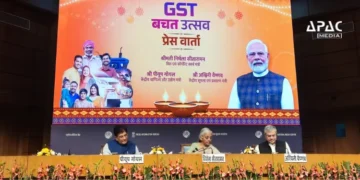

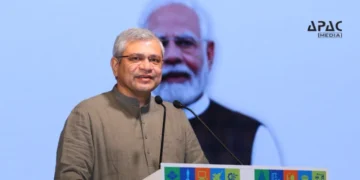







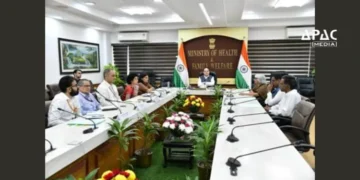






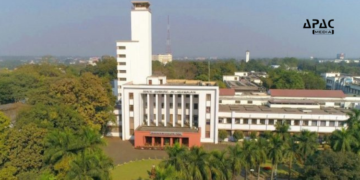



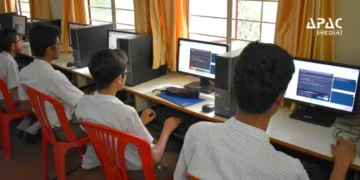

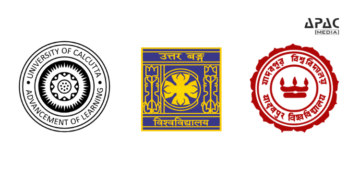



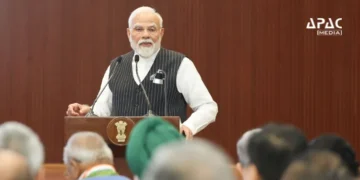

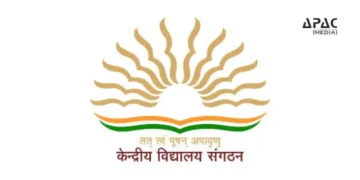




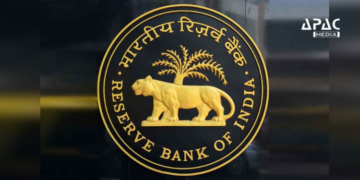





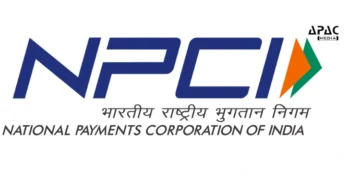

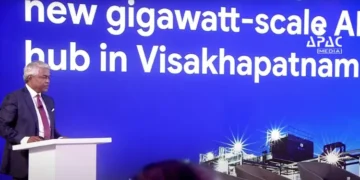




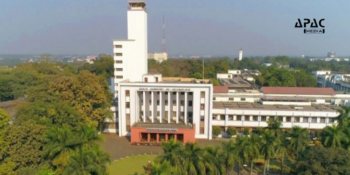

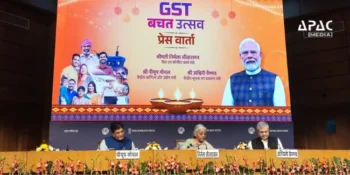










Discussion about this post